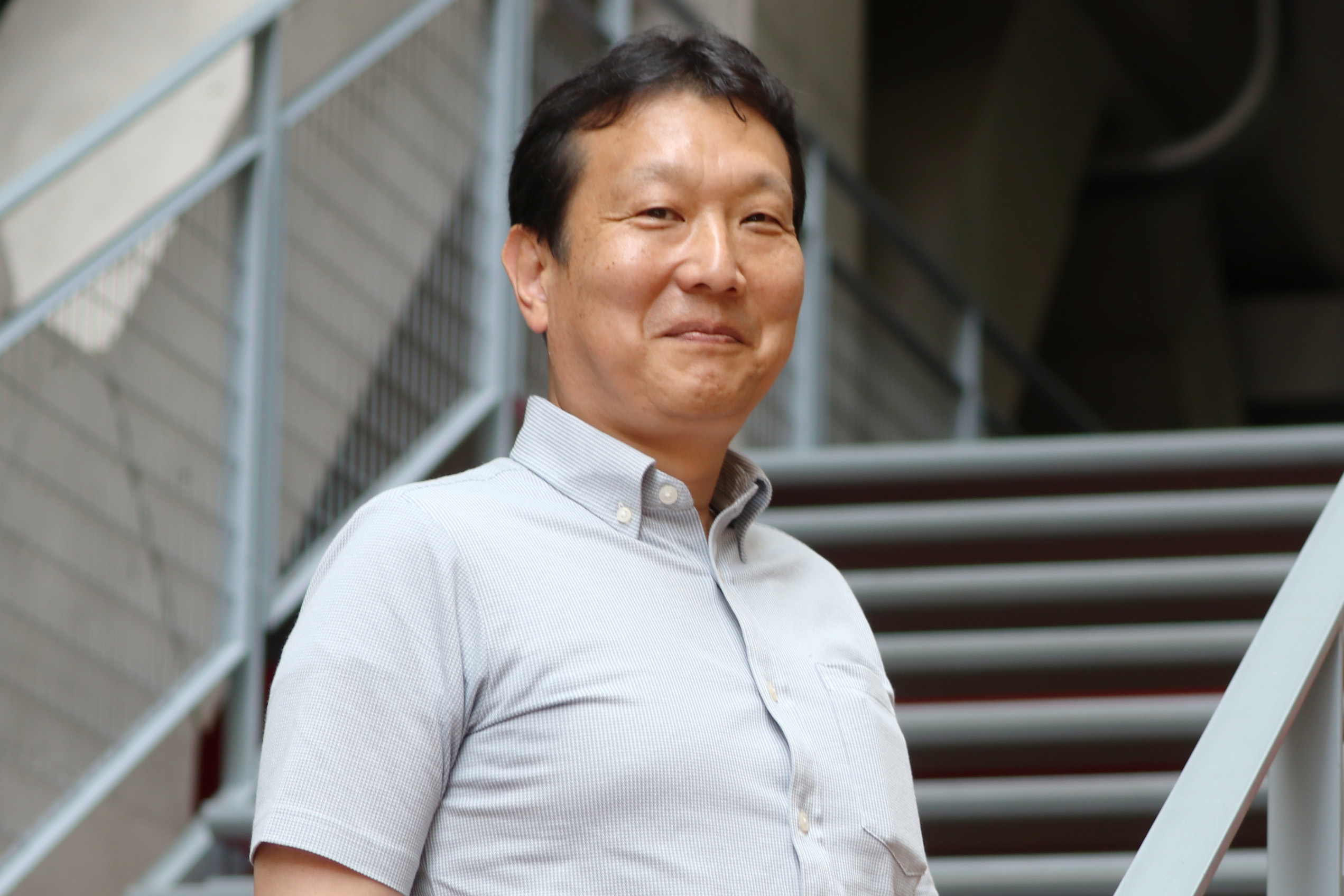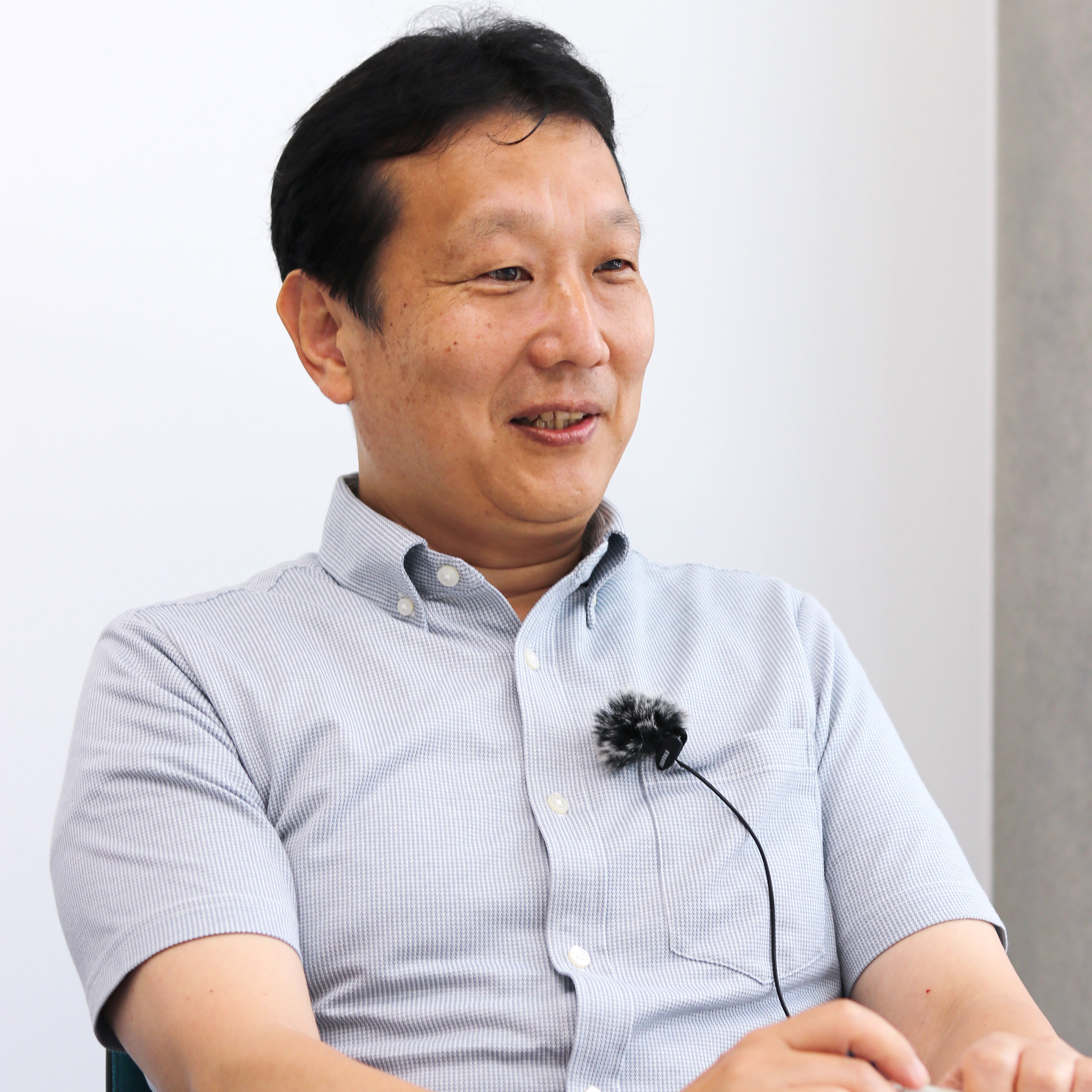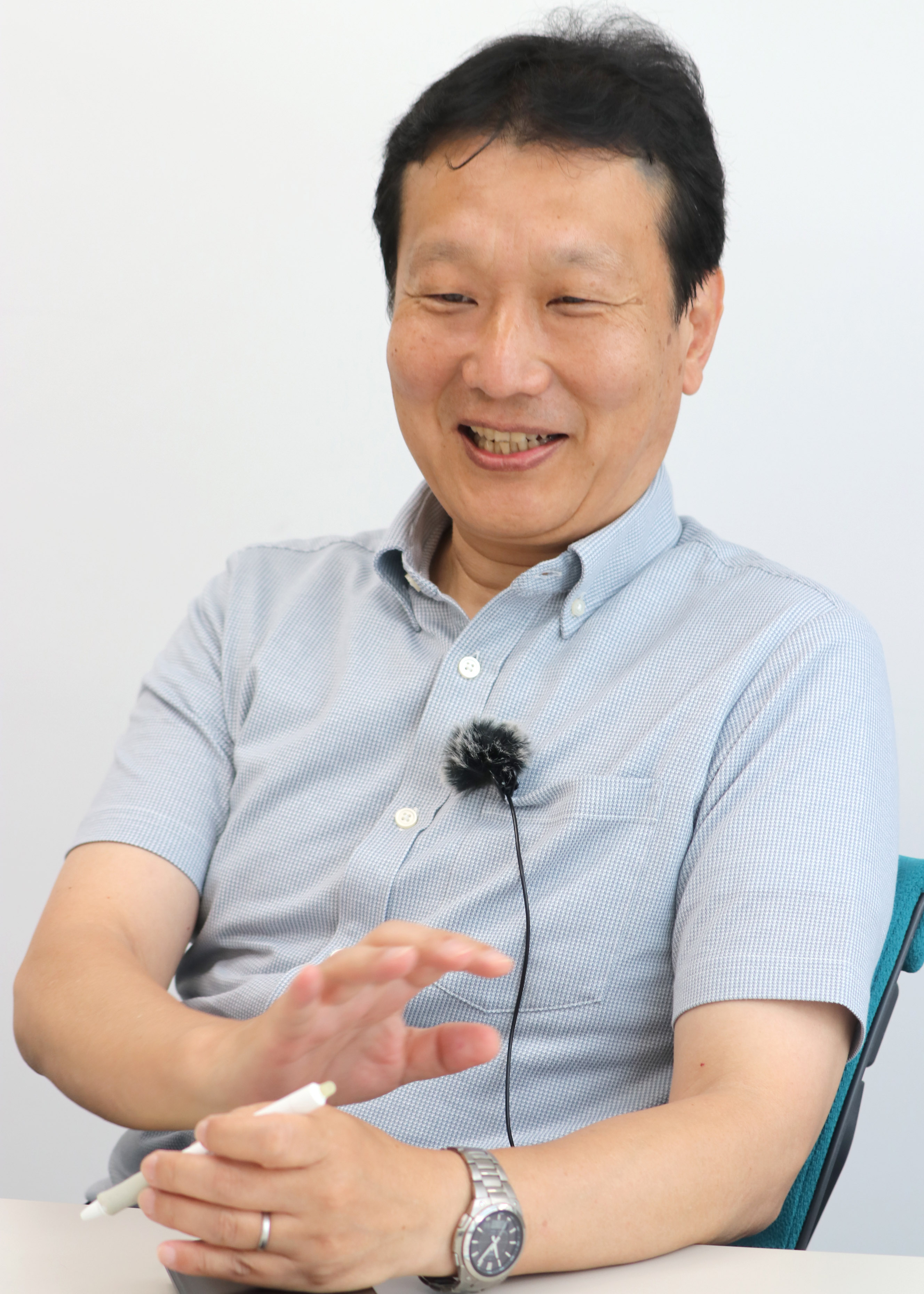
Finished the University of Tokyo's Graduate School for Engineering (Advanced Interdisciplinary Engineering) Ph.D. program in 2002; Researcher at Mochida Pharmaceutical Company's Research Institute from 1984-1988; Researcher, Lead Researcher, and Senior Researcher at the Institute for Future Engineering from 1988-2005; Professor at Shibaura Institute of Technology's Engineering Management Division; GRIPS Professor from 2007-present; also works as a visiting researcher at the National Institute of Science and Technology Policy (NISTEP) that is housed in the Ministry of Education, Culture, Sports, Science and Technology (MEXT) from 2003 to present
Expertise in analysis of S&T policy and innovation policy, management of technology, industry-university collaboration.
Q: You were originally a researcher in engineering and then turned to be a researcher in social science. May we know why?
A: After finishing the undergraduate education, I had a position at the research institute of a Japanese pharmaceutical company where I focused on the development of gene testing medicine. When I thought about a new job outside of the company, an idea hit me to shift my career from the world of wet lab to a think-tank in social science. This idea may have emerged because I read the book "Limits to Growth" being recommended by my parent in my elementary or junior high school days. I remember that I was deeply impressed by the book. This book uses a simulation method of system dynamics and analyzes the resources and the limit of the earth.
I joined university faculty when I taught Management of Innovation (MOT) at an extension program at Shibaura Institute of Technology, through the introduction of my mentor for my Ph.D. thesis, Prof. Fumio Kodama, the University of Tokyo's Research Center for Advanced Science and Technology (RCAST). Later, Prof. Akira Goto, another mentor at RCAST, recommended me to launch an STI program at GRIPS together with Prof. Sunami.
Q: Would you brief me your current study?

A: One of my research styles is to use an econometric approach that is to make micro-level analysis of patent data and other economic indexes. As I would also like to use the measurement methods that are used in non-economics fields, I am combining it with the covariance structure analysis and causal analysis used in psychology. When trying to make causal analysis, because of the ethical restrictions in social sciences, it is difficult to make an experiment that accompanies pure samplings. To complement it, I am doing matching analysis. I sort out the data into a group that has policy intervention and another group that does not by matching the samples that have very close attributes to each of the groups. Waiting and seeing them for a while, I evaluate the policy effects by ensuring that the group that has policy interventions has its effects.
The examples of my study that I taught to the students include how the characteristics and sizes of funding programs affect the variety of research (see Dr. Shimada's voice at:https://gist.grips.ac.jp/en/education/voice/voices-vol1.html ).This has proven that the distribution of government-run research themes can be analyzed by the index and framework of diversity used in ecology, and that the diversity of research contents is different, depending on whether it is curiosity-driven research or theme-oriented research. I am sure that this will provide a new insight for the selection criteria of competitive research funds. A similar approach has recently been used in a medical field when an experiment is not allowed due to ethical restrictions.
Q: The nature of the GIST students is different from the students at other universities. What kind of words would you like to provide to the students who are interested in studying or willing to study at GIST program?

The essential for the students in social science is whether they are ready with a research question, how to choose a research theme, and what kind of approach to use. These are the points that are different from those in the natural science fields that have clear research questions. It would take 1-2 years to narrow down a research theme. If you collect data while studying various methods, it might be difficult to finish Ph.D. thesis in 3 years. This is a hurdle for the students from foreign countries who are studying at GRIPS under the MEXT fellowship that is provided for up to 3 years. It would be difficult for them to finish the Ph.D. program in 3 years and return to their originating countries, unless they already have a clear research plan at the time they join the program.
Many of the GiST students are mid-career government officials and researchers in their 30's or 40's. Thus, I talk at my first class of a semester on "why it is necessary for the GiST students to learn about innovation and industry management." Without knowing how the industries react to policy intervention, it would be difficult to make policies and understand the management of government research institutions. The innovation system has gradually been changing. To make a change in policies in such an era, it is important to substantially understand the objects. That is the point we can learn from the industrial cases.
GiST is not a vocational school. I wish the young government administrators not to seek for specialized knowledge in a limited 3-year Ph.D. program, but use the opportunity to think about what the Japanese government should do in the Japanese innovation system and try to understand and think about the role of the administrators.